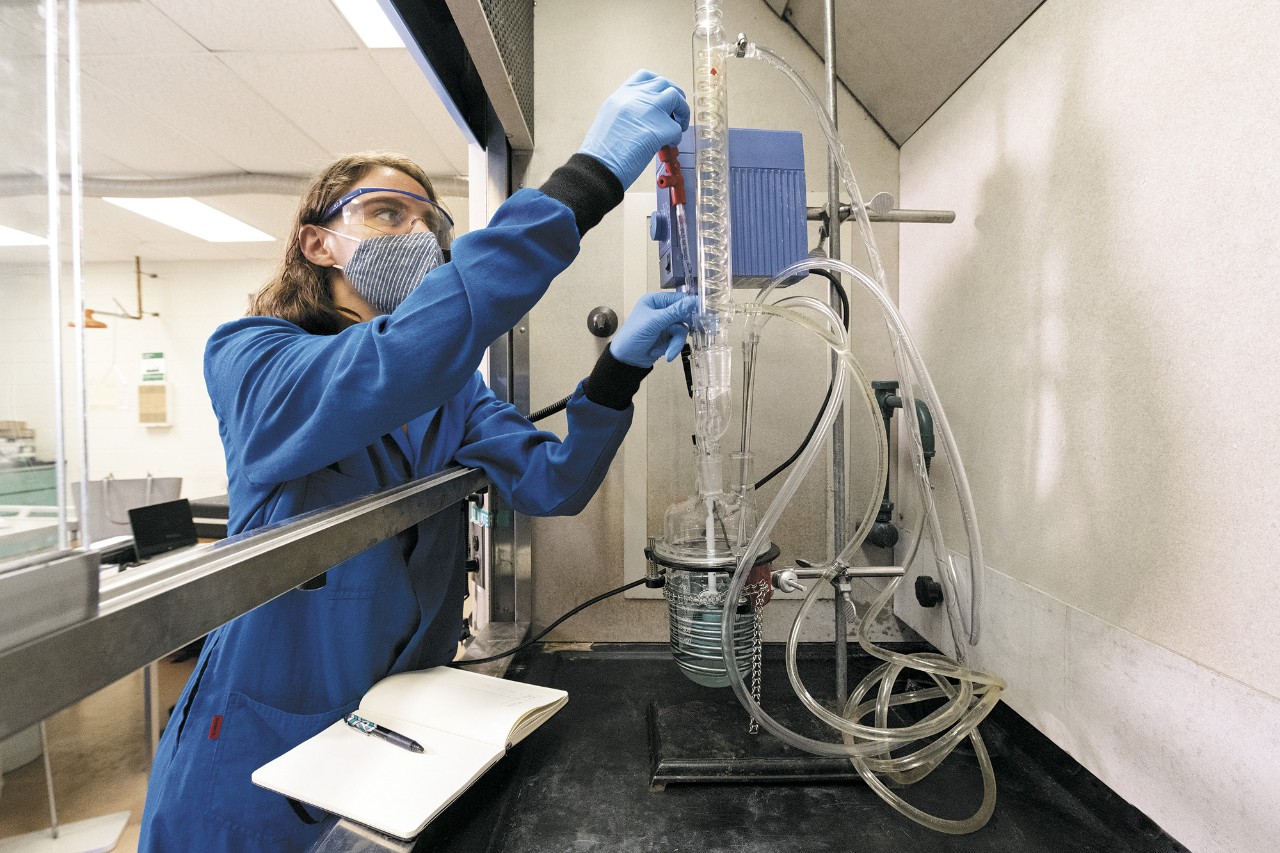
An engineer at Boeing is applying her research to accelerate a shift toward a more sustainable commercial aerospace industry

It's the opportunity of a lifetime: After devoting years of research at Villanova’s College of Engineering to investigating sustainable alternatives for aerospace materials, Alicia Piscitelli ’21 PhD is now on the composites team at Boeing’s state-of-the-art Seattle laboratory. Her work is already shaking up the conventional wisdom in her field.
“Naysayers think it’s impossible to recycle composites, but I think there’s something they’re missing,” says Alicia, who completed her doctoral degree in Sustainable Engineering in May 2021 and is continuing this work at the aerospace giant, where her research has the potential to become a reality that could transform the industry. “The life of an airplane is about 30 years and the progression of using composites in them is relatively recent.”
Composed of a polymer matrix and reinforcing fibers, composite materials (fiberglass is one example) are used to build the main components of just about every commercial airliner. The problem: While composites are lighter and stronger than metal by design, many of them are not sustainable or recyclable.
Alicia is working to change that. “We’re trying to create a sustainable supply chain for aerospace-grade polymers,” she explains. “We’re trying to source them from renewable materials so we don’t deplete natural resources that are limited on our Earth, like fossil fuels. There is still an opportunity to find a sustainable solution.”
Read the next story
The Wellness CEO
This Leadership major decides there’s no more putting off her dream to start a wellness and self-care business

